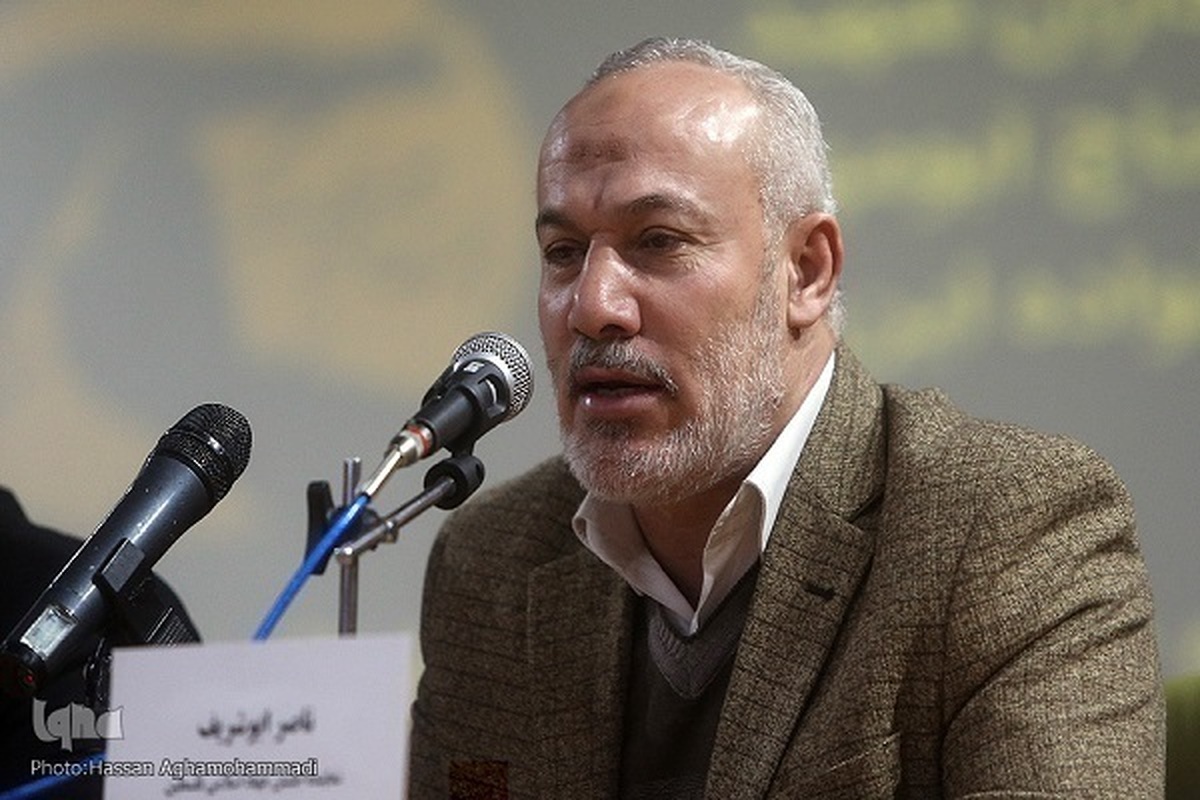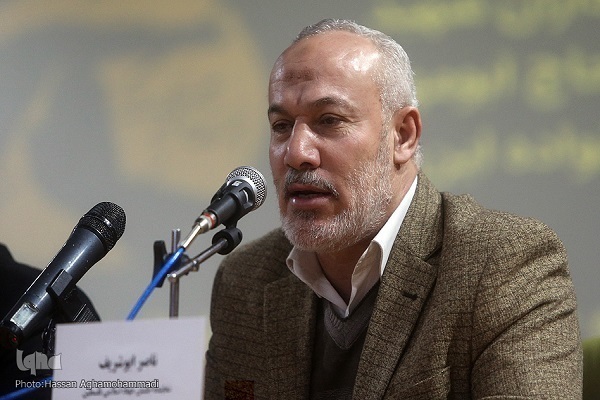Islamic Jihad Not to Accept Disarmament as Precondition for New Form of Siege


Speaking in an interview with IQNA following the ceasefire deal between Hamas and the Israeli regime in the Gaza Strip, Nasser Abu Sharif said, “We do not accept turning ‘disarmament’ into a precondition that establishes a new form of siege. Any security arrangements must be discussed within the framework of a just peace that guarantees the end of the occupation, not within the framework of a ceasefire imposed on the victim under siege.”
Following is the full text of the interview:
IQNA: Are Arab countries officially counting on the role of the United States and the peace plan announced by US President Donald Trump? What is the real political perspective for this initiative? Can this plan really stop the war and establish peace, as its supporters advertise?
Abu Sharif: So far, we are faced with a managed lull rather than a historic agreement: a temporary ceasefire, prisoner exchanges, and limited aid flows, with a general roadmap without punitive enforcement mechanisms for violations of the agreement. Even the signatures and declarations in Sharm el-Sheikh were in the form of understandings supported by mediators (Washington, Cairo, Doha, Ankara), not a binding agreement between the two sides of the conflict. Therefore, the real prospect of this agreement is crisis management, not a fundamental solution, unless it is accompanied by a binding plan for lifting the (Israeli) siege (on Gaza), complete withdrawal, and apolitical reconstruction. Reports show the fragility of implementation from the very early hours.
IQNA: The Sharm el-Sheikh agreement included three main points: the withdrawal of Israeli troops from Gaza, the entry of aid, and the exchange of prisoners. We are in the early stages and have not yet reached the “disarmament of Hamas”. Will this become an obstacle to the deal? Given Israel’s history (of breaching deals), can we expect violations of the agreement?
Abu Sharif: “Disarmament” is clearly stated in Trump’s speech as a condition, even with the threat of force if “voluntary” action is not taken. This condition is a destructive one if it is discussed without a fair legal-political process. As for the violation of the agreement, the signs of it have begun: Israel, citing the slow pace of the delivery of captive bodies, announced a halving of the number of trucks carrying aid, despite the fact that the exchange agreement specified time frames and a gradual process. This behavior threatens the humanitarian pillar of the agreement and emphasizes the need for impartial monitoring mechanisms and guarantees, rather than trusting in the promises of the occupiers.
Read More:
Our position is that there are no preconditions for security arrangements for the besieged people, and any talk about security arrangements should not take precedence over the right to life, freedom, and reconstruction of Gaza.
IQNA: Trump was seeking the Nobel Prize on the one hand, and on the other hand, he sought to end the Gaza war and calm tensions between Azerbaijan and Armenia. Now that he has failed to receive the Nobel, can he seriously advance the “Gaza Peace Plan” and oblige both sides to adhere to it?
Abu Sharif: Washington’s ability to implement the agreement faces two obstacles:
First, the occupying regime, which is internally divided, is politicizing the issue and changing its provisions based on domestic considerations.
Second, the fragility of the plan’s structure, namely the lack of impartial enforcement tools that should include penalties for violation of the agreement, a binding timetable for reconstruction, and withdrawal.
Without real leverage, such as the suspension of military aid in the event of violations, the opening of crossings according to declared daily limits, and UN-supervised restrictions, the plan will remain a fragile and breakable ceasefire.
From the position of resistance, we say that anyone who wants to oblige everyone to comply with it should start by obliging the occupiers to a clear timetable for withdrawal, a legal financial corridor for reconstruction, and the reopening of the crossings without political blackmail.
IQNA: After the ceasefire, will the enemy commit to a full withdrawal from Gaza? Is Washington an honest broker, and is Trump a guarantor of this agreement?
Abu Sharif: Experience shows that the occupiers’ withdrawals are often temporary and tactical. The existence of buffer zones, control of crossings, and varying security requirements are among the signs of this. Even after the ceasefire was announced, Israel reduced aid beyond what was agreed upon and continued to press for the handover of bodies. Therefore, we do not see Washington as an honest mediator; Washington is a biased party unless it changes from “a mediator who pressures the victim” to a mediator who restrains the occupiers when they violate the agreement. As for Trump, his role is tactical, one of show and empty promises, not binding legal guarantees. The real guarantee is a united Palestinian position, strong regional support, and a binding international monitoring mechanism for crossings, disengagement, and reconstruction.
IQNA: Everyone agrees that the war has changed the nature and landscape of the Palestinian crisis. What are the characteristics of the next phase in light of the results of the last war?
Abu Sharif: As for the prisoners and remains (of captives), all the living Israeli captives were handed over as part of the exchange agreement, and four coffins containing the remains of the dead were handed over, with a clear commitment to complete the handover of the remaining prisoners. However, the problems on the ground (heavy debris, contaminated areas, lack of equipment) complicate and possibly prolong the process, as the ICRC acknowledges this. Therefore, this issue should not be used for humanitarian blackmail or to reduce aid.
Read More:
As for the peace and arrangements for the coming days, the problem of the future will be the crossings, the relief, the reconstruction and those who will manage them. There will be an attempt to establish a technocratic administration under international or regional supervision. Our position is that any arrangement that does not stem from the general will and the right of our people to self-determination will be weak.
Regarding reconstruction, the huge cost estimates and the pressure to link budgets to political conditions will be a contentious issue. Our strategy is to see funding pathways under legal protection, independent technical oversight and the criminalization of politicization of food, medicine and housing; and the restoration of critical infrastructure (water/electricity/hospitals) as a top priority.
On the balance of deterrence and the meaning of “disarmament”, our view is that we do not accept “disarmament” becoming a precondition for re-establishing the siege. Any security arrangements must be discussed within the framework of a just peace that guarantees the end of the occupation, not within the framework of a ceasefire imposed on the victim under siege.
The regional and international perspective of this ceasefire is that, from our perspective, the proponents of this plan want “stability without justice”. We will confront this [situation] with a Palestinian plan: an end to the occupation and siege, the release of prisoners, unconditional reconstruction, and the right to self-determination. Any path that does not recognize these fundamental principles will fail at the first field test.
This initiative may provide a tactical ceasefire, but it will not lead to strategic peace without binding guarantees for unconditional withdrawal, lifting of the siege, and reconstruction.
The issue of captives is over and the remaining Palestinian prisoners remain a complex humanitarian issue that should not be turned into a tool for collective punishment by reducing aid. The reconstruction battle is the next real test, and without a just framework, the crisis will reproduce itself in new forms.
IQNA: After the cessation of military operations, should the Palestinian struggle stop or continue? If so, how and on which fronts?
Abu Sharif: The resistance will not stop; it will be expanded to wider arenas using new tools. A brief roadmap includes the following:
Legal fight: Systematic documentation of crimes (names/times/coordinates), filing lawsuits at the International Criminal Court and universal jurisdiction, and protecting reconstruction from extortion through binding agreements.
Read More:
Political struggle: Unity based on a minimalist platform (end of occupation and siege, unconditional reconstruction, exchange of prisoners and human remains, right to self-determination) and management of the “day after” through popular will and transparent oversight.
Struggle in the realm of narrative and media: shaping public opinion through visual archives and documentary testimonies, and a discourse that calls things by their names (occupation/siege/hunger) and addresses the world in its own languages.
Moral struggle: We demonstrate the originality of the goal and the integrity of the means; protecting civilians, providing relief with dignity and transparency in public budgets - morality is the guarantee of the narrative.
The struggle for the right to live with dignity: (Striving for) completely lifting the blockade and opening the crossings, restoring vital infrastructure (water/electricity/sanitation/education) and making the prisoners’ case a permanent priority without extortion.
The conclusion is that we will not break the weapon that protected our dignity. We propose today the logic of law, dialogue and truth. Victory is a long journey of awareness and discipline and daily construction that transforms the rubble into a place to live.
4311623



